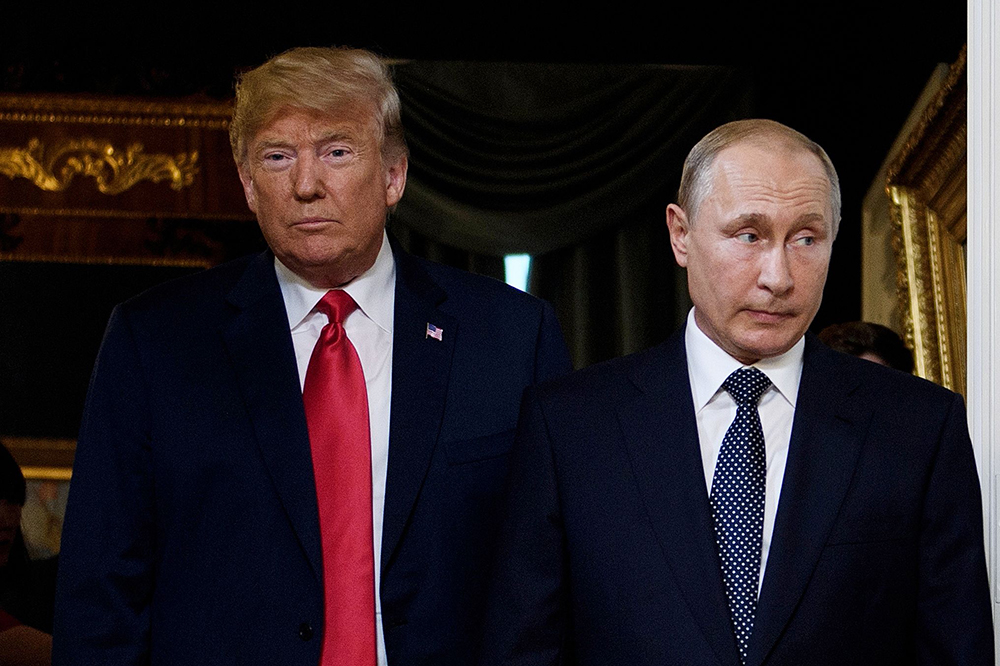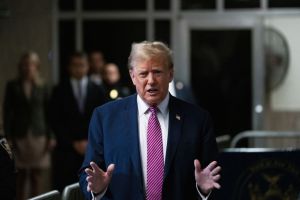The books written about the tragedy of the Russo-Ukrainian War will be legion. In the meantime, there’s another book that ought to have been written 20 years ago about a previous tragedy concerning Russia: how, following the collapse of the Soviet Union in 1991 and with it the demise of the communist regime, Russia and the West failed to “converge” in some way.
Why did the two did not come to embrace each other politically, economically, and culturally?
The rivalry between East and West has since 1917 been fundamentally an ideological and not a nationalist one. Historically, before the Bolshevik Revolution, Washington had been on cordial terms with Moscow, from which it had purchased the Russian territory of Alaska in 1867. Similarly, members of the British monarchy had intermarried with Russian royalty. And Russia had been an ally of the Entente against the Central Powers before Lenin and the Bolsheviks took her out of it. In 1905, it was President Theodore Roosevelt who brokered a treaty between Moscow and Tokyo following the Russo-Japanese War.
Yet a dozen years later, after Lenin seized control of the country, the newly created Union of Soviet Socialist Republics and the United States and Western Europe instantly became mortal enemies. They remained so for 74 years.
When I was growing up in Manhattan in the 1960s, my family and I knew many White Russians, at school and socially. All of them were refugees, and all of them were refined, multilingual, and highly educated people. Some were titled members of the old Russian aristocracy and even royalty, and most were talented in the arts or in business.
While distinctively Russian, they were also as recognizable and fully European as our French, English, and Italian friends, whom they generally exceeded in the strength of their (Orthodox) Christian faith. Many of these families had lost everything they had during the Revolution, and all of them had re-established themselves comfortably in America. One family had made and lost two fortunes across the Asian and European continents before amassing a third in the States. The rest were members of the less well-off but genteel class, who nevertheless could afford elegant dinner parties at New Year’s and white-tie dances at the Waldorf and the Plaza.
The Soviet Union, of which Russia was primo inter pares, was dangerous to the United States and the West primarily as the engine, plotter, wagerer, and underwriter of international ideological revolution, not as the leader of a traditional nationalistic empire. Once lost, that role passed to communist China and her allies.
After 1991, the logical course was for the West to embrace Russia and welcome the Russian people back to the old Christian civilization of the West. This, of course, did not happen. The reasons are many and complicated, among them the legacy of three quarters of a century of enmity and mutual, oft-repeated threats of total destruction; the numerous corrupt party bosses and schemers, members of the old leadership left in place in the Kremlin, who wished to retain their power, their privileges, and their wealth; the military establishments and the arms manufacturers on both sides of the Atlantic; the persistence of international economic ties and political alliances formed before the Second World War that continued throughout the Cold one; and the persistence also of Russian authoritarianism that Western liberals despise more than they really fear. (I suspect that, even today, many liberals — American liberals especially — would prefer an ideological successor to Joseph Stalin as president of Russia, though they dare not say so. Franklin and Eleanor Roosevelt felt a personal warmth for the man, and were in sympathy with some of his political policies.)
When Donald Trump was elected in 2016, it was my wary hope that, being neither a professional politician nor an ideologue, he would perceive the possibility for a true rapprochement with President Putin and his socially conservative government, one going far beyond the naïve and silly political theatrics of presenting the Russian head of state with a yellow “reset” button stuck into a gray plastic box like something on the set of a children’s television show.
Yet any chance of such a thing happening was dashed by the original Big Lie, the Democrats alleging a plot between Trump and the Kremlin to defeat Hillary Clinton and put the Republican candidate in the White House. This lie persisted throughout Trump’s administration and remains alive today. Trump thus entered the Oval Office politically neutered (as William Barr acknowledged in a recent television interview with Brett Baier) with respect to Russia. He knew that any diplomatic feint he might make toward Putin, any inducements he might offer him, would be instantly pounced upon by his enemies as “proof” that he was owned by the Russians.
The question of whether Putin would have invaded Ukraine were Donald Trump in the White House is being fiercely debated at present. Another question that ought to be debated is whether, had Trump not been so constrained by the lies and intrigues against him, he might have succeeded in reassuring Putin of America’s good and generous intentions toward Russia. The tragedy is that such a policy never had a chance to be tried.
It is, of course, entirely possible that Putin never could have been brought ’round, that he is too filled with anger, resentment, hatred, and ambition to have taken his country closer to the West. The fact that we shall never know one way or the other makes the current catastrophe in Ukraine more tragic still.


















